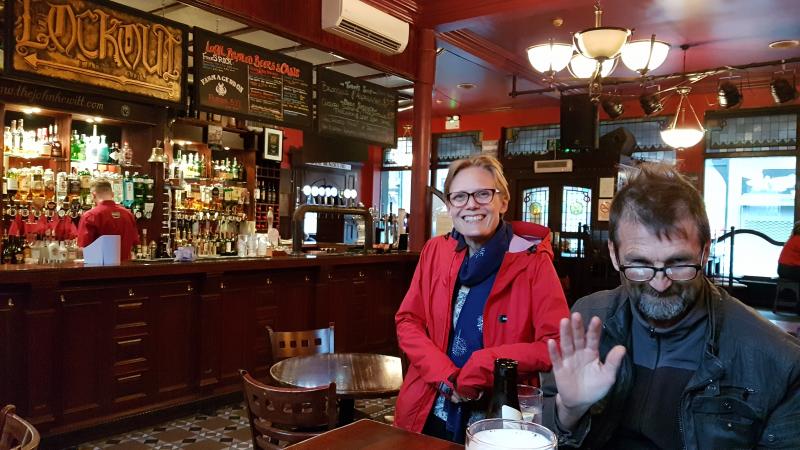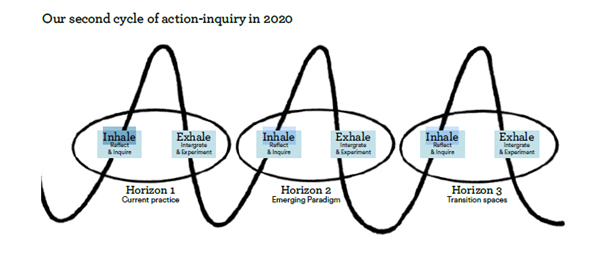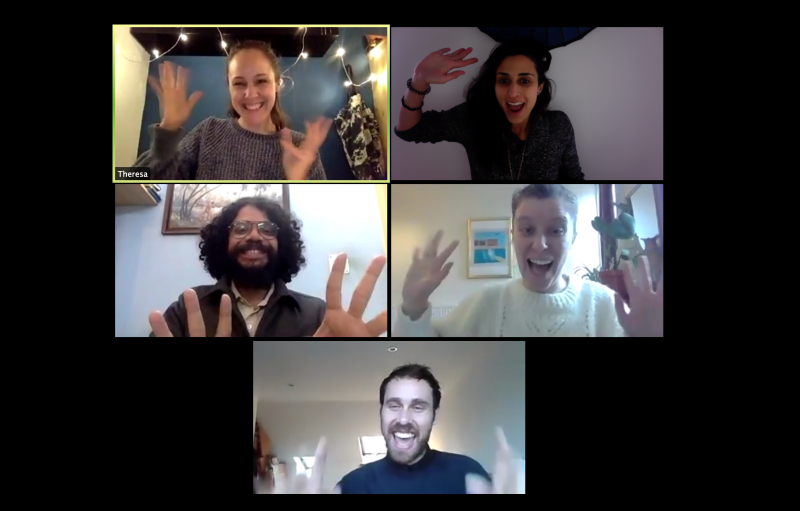Mary Stevens29 Apr 2021
I was lucky to be part of Boundless Roots Collective’s inquiry into how we facilitate radical change. I share some of my insights from our ground-breaking report below.
Over the last couple of years we have seen a rise in awareness of issues around climate and nature – but this has not resulted in major changes to how most of us live, act and find meaning in the world. We are still locked into the dominant values around competition, growth and consumption as a proxy for success. These dominant frames act as a major barrier to change.
How do we make the radical changes to the way we live to respond to the climate and nature crises?
"We need to learn how to sit in the unknown space in-between and work with uncertainty as a condition of our work. This involves making space for new approaches and ways of working that can respond to this changing landscape, for example spaces of shared inquiry that allow us to sense together what needs to emerge, rather than assuming we know what needs to be done based on old assumptions." (page 39)
This insight from the Boundless Roots’ report Roots of Transformation struck me as core to exploring our biggest challenge – these changes go deep, the conditions in which we work change all the time and we have to be open to learning as we go, all the time. How do we navigate polarities? How do we find ways to lead, inspire and facilitate change in a world where often we seem more fiercely divided than united behind a common cause?
Strategies for transformational change
These are some of the questions addressed by the Boundless Roots Collective, convened by Forum for the Future to develop strategies for transformational change.
I joined the inquiry process a year ago and discovered many resonances with my work as a member of Friends of the Earth’s Experiments Team- testing assumptions and exploring practical projects to help build capacity and resilience at community level. But for our work to have the greatest impact, we need to play our part in answering the toughest ‘How might we’ question of them all – how to create the conditions for radical changes in how we live?
A thought-provoking inquiry
The report distils a wealth of practical learning and reflection into three key ‘leverage points’: the cultural landscapes that shape our behaviour; the dynamic of power that can block or enable change and creating meaning as the motivating force for how we live. To enable radical change to happen, we identified three enablers – the muscles we need to keep flexing to make change happen: how to work with ‘others’ (with different perspectives), how to overcome trauma, how to value the skills of organisers. These are great principles to bear in mind in developing and delivering projects. I now ask myself whether our projects are working with these ‘leverage points’ and strengthening the right muscles?
These are some of the things that caught my attention.
What is the right balance between rapid and deep change?
Do we focus on scaling the ‘easy’ gateway behaviours (recycling comes up a lot here) or do we focus on building the relationships of trust that can lead people to deep change, often linked to a shift in where we see meaning and purpose in our lives? The two aren’t always at odds – we know from our Ownit programme with Enrol Yourself [links] – that starting a conversation about ‘rapid changes’ (moving your bank account, for example) can lead quickly into deep change (‘what sort of future am I saving for anyway?’). The recent report from the Cambridge Sustainability Commission on Scaling Behaviour Change (to which Boundless Roots members contributed) draws the same conclusion. But we need to be deliberate in using these opportunities.
I found it striking that we kept referencing the power of the peer groups to make change. We’ve seen this through our OwnIt programme, but it’s a pattern that occurs everywhere you see sustained change. We all need to find our tribe, whether that’s our mates talking about money and climate, or whether it’s peers in the advertising industry coming together to put their skills to the service of the climate and ecological emergency.
Acknowledge and work with trauma
A couple of years ago we had the chance to work, briefly, with an astonishing activist in Derry, Northern Ireland. Jim Keys is a man working with some of the most traumatised young people in an area scarred by conflict - and often he’s found himself the target of their fear and anger. But what struck me and my colleague Joanna most was his curiosity and compassion – and desire to support these young people to channel their energy towards something more positive.
I’d never really thought about trauma in my practice in the environmental movement before this visit to Northern Ireland – and for the first time the Boundless Roots Collective has helped me see this experience not as a ‘one off’ but as just one example of the systemic breakdown of our relationship with nature, and with each other. If we understand that the climate crisis is a justice crisis, then we start to see how injustice and abuse of power has created individual and collective trauma, numbing us to the miracle of the living world, trapping us in fear and affecting the ability of people and societies to transform.
This awareness makes me want to act with more compassion – what would Jim do, I wonder? - but it’s also shaping my parenting, for example. What does it mean to raise trauma-aware kids, who are attuned to suffering of their peers, know to seek solace in nature and able to support before they judge.
Some brilliant and inspiring practical examples
I loved deartomorrow.org (using pledging, and powerful emotional narratives), Foresta seasonal academy (a learning journey to reconnect you with the rhythms of the year), and the good humour and community spirit of Makesense’s short programmes and in particular the thoughtful journey they offer emergent (and reluctant) ‘activists’ (in French). The opportunity to share with and learn from Abhay and Jai from the Initiative for Climate Action in Bangalore was also hugely rewarding; despite very different contexts our challenges are very similar.
What’s useful for our work?
The value of an action-inquiry approach. Through Boundless Roots I’ve learned a lot about how to structure a learning journey. In particular I found the ‘inhale-exhale’ structure really useful.
Be curious
This is a dense report, full of references, but also challenges, and personal provocations. It’s a report I will return to again and again, for inspiration. If, in Joanna Macy’s framing, we understand ourselves as living in the time of the Great Unravelling – somewhere on a journey towards the Great Turning that will support the emergence of a life-sustaining society - then we need to remain open to new approaches. Read the report, put it down for a while, sit with it, take it for a walk, dust it off again in a few months. Let it be your companion on our journey through turbulent times.




